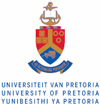Two pioneering studies published in Nature and Genome Medicine recently identified genetic signatures explaining ethnic differences in the severity of prostate cancer, particularly in sub-Saharan Africa.
Through genetic sequencing of prostate cancer tumours from Australian, Brazilian and South African donors, the international research team identified a new prostate cancer taxonomy (classification scheme) and cancer drivers that not only distinguish patients by genetic ancestry, but also predict which cancers are likely to become life-threatening – a task that currently proves challenging.
“Our understanding of prostate cancer has been limited by a research focus on Western populations,” said senior author Professor Vanessa Hayes, a genomicist and Petre Chair of Prostate Cancer Research at the University of Sydney’s Charles Perkins Centre and Faculty of Medicine and Health. “Being of African descent, or from Africa, more than doubles a man’s risk for lethal prostate cancer. While genomics hold a critical key to unravelling contributing genetic and non-genetic factors, until now, data for Africa has been lacking.”
“Prostate cancer is the silent killer in our region,” said the University of Pretoria’s (UP) Prof Riana Bornman, an international expert in men’s health and clinical lead for the Southern African Prostate Cancer Study in South Africa.
“We had to start with a grassroots approach, engaging communities with open discussion, establishing the infrastructure for African inclusion in the genomic revolution, while determining the true extent of prostate disease.”
Through whole genome sequencing (mapping the entire genetic code of cancer cells), over two million cancer-specific genomic variants were identified in 183 untreated prostate tumours from men living across the three study regions.
“We found Africans to be impacted by a greater number and spectrum of acquired genetic alterations, with significant implications for ancestral consideration when managing and treating prostate cancer,” Prof Hayes said.
“Using cutting-edge computational data science which allowed for pattern recognition that included all types of cancer variants, we revealed a novel prostate cancer taxonomy which we linked to different disease outcomes,” said Dr Weerachai Jaratlerdsiri, University of Sydney computational biologist and first author on the Nature paper.
“Combining our dataset with the largest public data source of European and Chinese cancer genomes allowed us to place the African prostate cancer genomic landscape into a global context.”
As part of her PhD at the University of Sydney, Dr Tingting Gong, first author on the Genome Medicine paper, sifted through the genomic data for large changes in the structure of chromosomes (molecules that hold genetic information). These changes are often overlooked because of the complexity involved in computationally predicting their presence, but are an area of critical importance and contribution to prostate cancer.
“We showed significant differences in the acquisition of complex genomic variation in African- and European-derived tumours, with consequences for disease progression and new opportunities for treatment,” Dr Gong said.
This cancer genome resource is possibly the first and largest in the world to include African data.
“Through African inclusion, we’ve made the first steps not only toward globalising precision medicine, but to reducing the impact of prostate cancer mortality across rural Africa,” Prof Bornman explained.
The research is part of the legacy of the late Archbishop Emeritus Desmond Tutu, who was the first African to have his complete genome sequenced, data which would be an integral part of genetic sequencing and prostate cancer research in southern Africa. The results of the sequencing were published in Nature in 2010.
“Diagnosed at 66 with advanced prostate cancer, to which he succumbed in December 2021, the archbishop was an advocate of both prostate cancer research in southern Africa and the benefits of genomic medicine,” Prof Hayes said. “We hope this study is a first step to that realisation.”











































